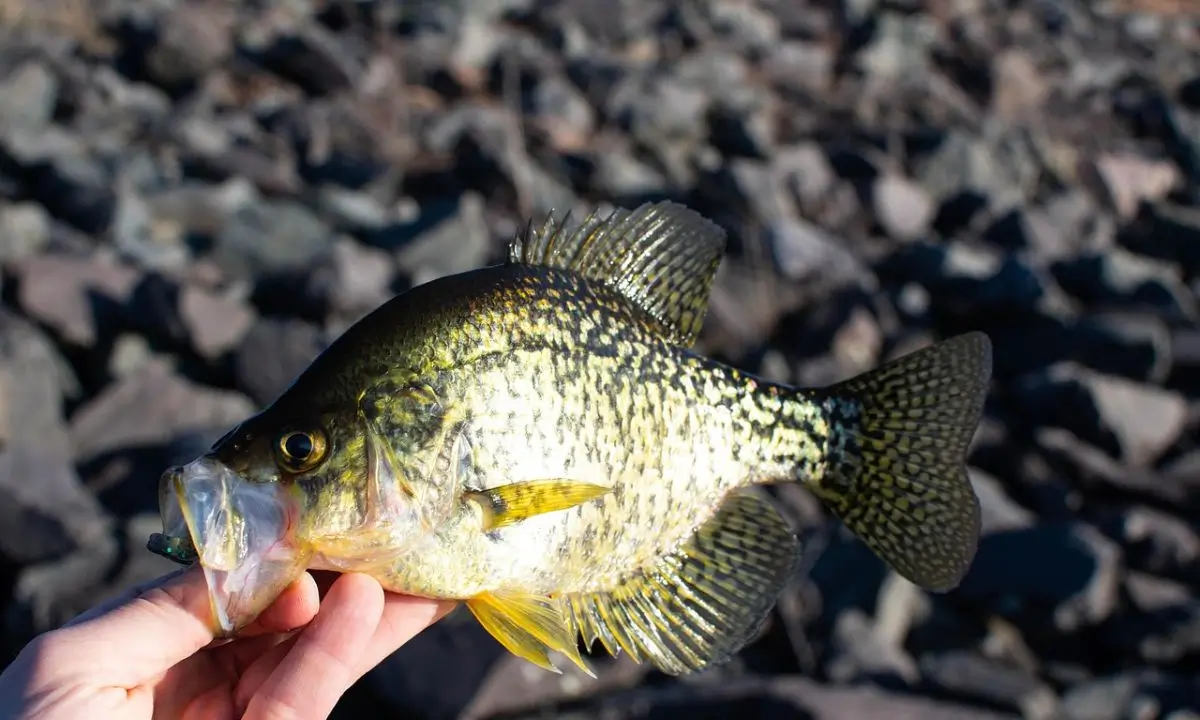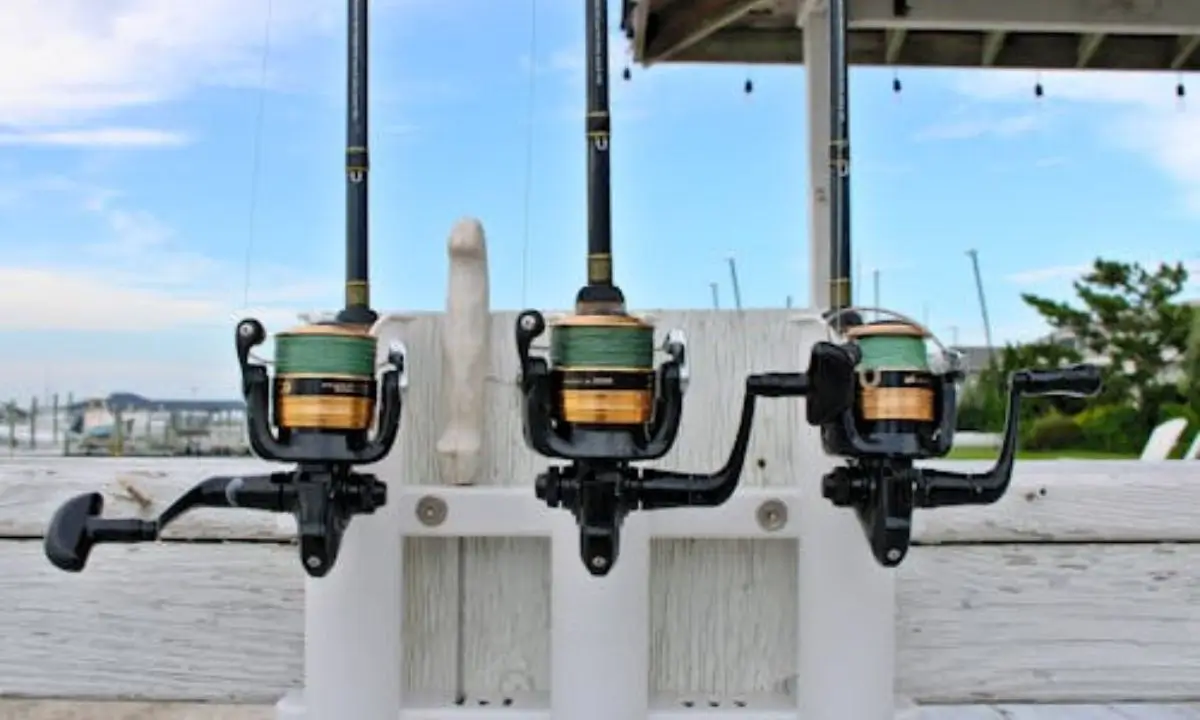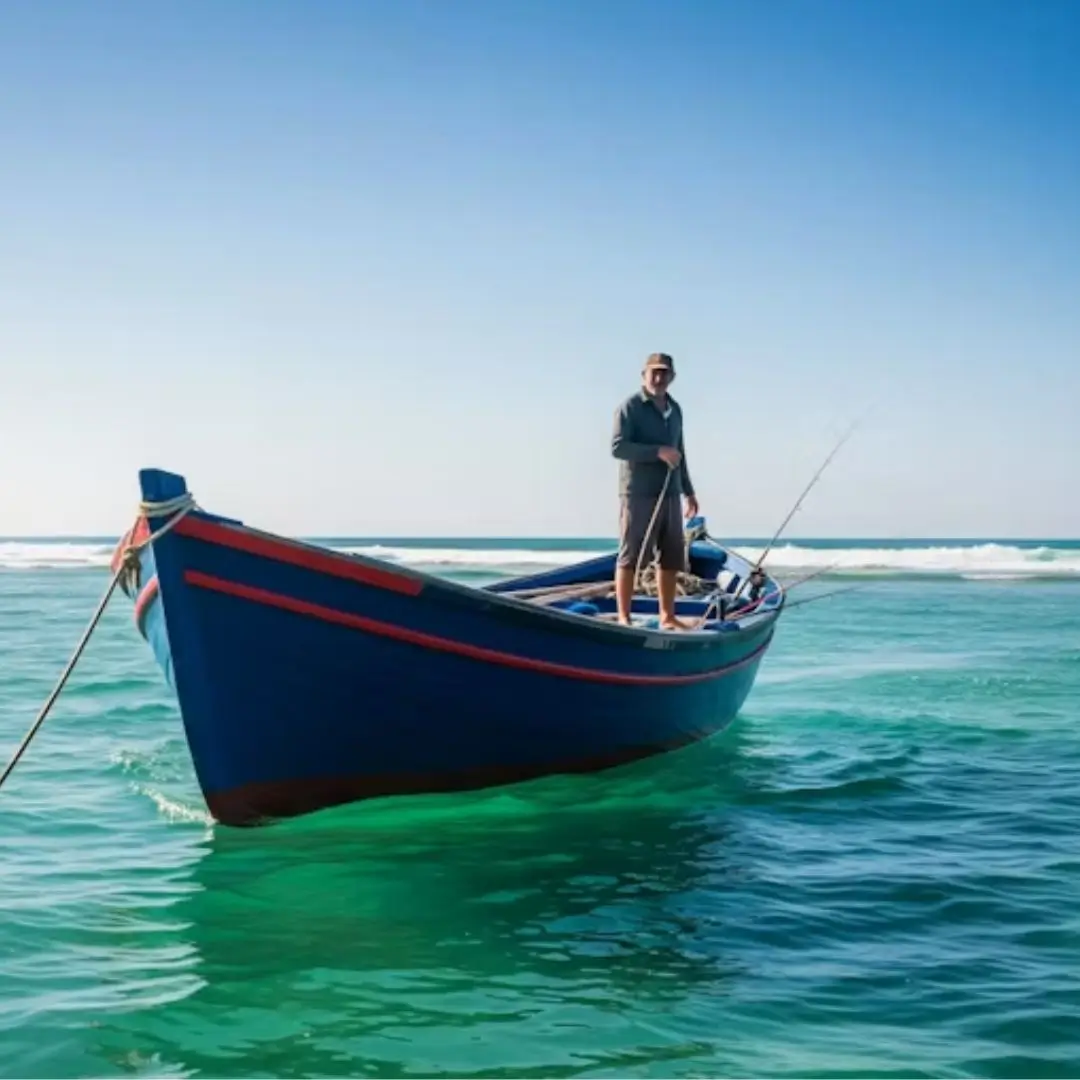Introduction:
Fishing from a pontoon boat is easy, stable, and beginner-friendly. With the right pontoon fishing accessories and setup, you can enjoy bass, crappie, or even light saltwater fishing while staying safe and comfortable.
Fishing from a pontoon boat is one of the easiest and most enjoyable ways to spend time on the water. Whether you’re a beginner or a seasoned angler, pontoon boats offer stability, comfort, and plenty of space to organize your fishing gear. From bass and crappie to light saltwater fishing, these boats make it simple to cast, move, and enjoy a safe, relaxed fishing experience. By using the right setup and accessories, anyone can turn their pontoon boat into a productive fishing platform.
Why is Fishing from a Pontoon Boat So Popular?
Pontoon boats have become increasingly popular among anglers because they perfectly combine stability, comfort, and generous space. Unlike smaller boats that tip or rock with every movement, pontoons provide a flat, steady deck that makes casting and reeling much easier. Beginners especially appreciate this stability, while families enjoy room for friends, gear, and coolers.
The versatility of pontoon boats is another reason for their popularity. Whether you are bass fishing, crappie fishing, or even trying fly fishing, pontoons offer the stability and space to fish comfortably. With the right accessories, such as rod holders, live wells, and trolling motors, a pontoon can easily be converted into a high-performing fishing platform for both casual trips and competitive tournaments. Many anglers also note that pre-equipped fishing pontoons reduce setup time and make it easy for beginners to enjoy fishing immediately, enhancing the overall convenience and efficiency of each trip. known more Big Fish Boat
Can You Use a Pontoon Boat for Fishing?
Yes, you absolutely can! Today, many pontoon boats are designed with anglers in mind, featuring built-in rod holders, swivel chairs, and spacious decks that make casting and moving around effortless. Whether you’re aiming for bass tournaments or casual crappie trips, these boats combine comfort and efficiency. Pre-equipped fishing pontoons are widely available, making it easy for beginners to start fishing without extra modifications or setup hassle.
If you’re searching online, you’ll find many options for fishing pontoon boats for sale that come pre-equipped with everything you need. These setups are especially useful for anglers who want comfort and efficiency in one package.
So if you’re wondering, “Can you bass fish out of a pontoon boat?” – the answer is yes, and in fact, many crappie tournaments also allow pontoons because of their space and stability.
Is It Hard to Fish from a Pontoon Boat?
Fishing from a pontoon boat is remarkably easy, even for beginners. The wide, flat deck provides stability that smaller boats often lack, allowing anglers to stand, move around, and bring along family members without concern. Fly fishing, bass fishing, or crappie trips become more enjoyable because the stable platform enables smooth casting and better control over your line.
One common challenge is wind, as pontoons sit slightly higher and can drift more than low-profile boats. However, this can be easily managed with a trolling motor, drift sock, or double-anchor setup. These simple adjustments ensure your boat stays in position, letting you focus on fishing instead of constantly repositioning.
Overall, the ease of use, combined with space and stability, makes pontoon boats a favorite choice for new and experienced anglers alike.
What Are the Advantages and Disadvantages of Fishing from a Pontoon Boat?
Before choosing a pontoon boat for fishing, it’s important to weigh its advantages and disadvantages.
Advantages:
-
Stability: The wide, flat deck makes pontoons ideal for beginners, families, and anyone who wants a secure fishing platform.
-
Spaciousness: There’s ample room for rods, tackle boxes, coolers, seating, and multiple anglers, making longer trips more comfortable.
-
Comfort: Extended fishing trips become more enjoyable thanks to roomy layouts and steady platforms.
-
Versatility: Pontoons can handle freshwater fishing for bass and crappie, inshore saltwater fishing, and even fly fishing with the right accessories.
Disadvantages: -
Speed: Pontoons are slower than cruisers or speedboats, so they’re not suited for quick offshore runs.
-
Wind Drift: Their higher profile means anchoring or using a trolling motor is important to maintain position.
-
Offshore Limitations: Pontoons are best for lakes, rivers, and nearshore waters; deep-sea fishing is not recommended.
Overall, while pontoons aren’t designed for speed or deep-sea trips, their stability, space, and comfort make them a top choice for relaxed, productive fishing experiences.
Is a Pontoon Boat the Same as a Sailboat or Cruiser?
Many people wonder whether a pontoon boat is similar to a sailboat or cruiser. The answer is no. Unlike sailboats that rely on wind and sails, pontoon boats operate with a motor, giving you control and consistency on the water. Cruisers, on the other hand, are designed for speed and long-distance travel, while pontoons prioritize stability, space, and comfort.
For anglers, this makes pontoons especially practical, as they provide a steady platform for casting, reeling, and moving around safely. Whether you’re fishing for bass, crappie, or enjoying a relaxed family outing, pontoons offer an ideal balance of comfort and versatility without the challenges of high-speed travel or sailing. more info Bass Fishing Productions Net
Fishing from a Pontoon Boat – Anchoring, Shallow Water, and Setup Tips
How to Anchor a Pontoon Boat for Fishing?
Anchoring is essential when fishing from a pontoon boat, especially because pontoons can drift more in wind or current compared to smaller, low-profile boats. Begin by slowing your boat to idle speed, then drop the anchor at a 45° angle. Use 5–7 times more line than the water depth to ensure a secure hold. Wait until the anchor firmly sets into the bottom before starting your fishing.
Many anglers wonder whether a pontoon truly needs an anchor. The answer is yes — it helps keep your boat steady, maintaining position over your target fishing area. For freshwater lakes, mushroom or fluke anchors are most effective, while a Danforth-style anchor works best in saltwater or sandy conditions. For a 22-foot pontoon, a 15–20 lb anchor usually suffices, but in windy conditions, a heavier anchor or double-anchor setup can prevent drifting. Proper anchoring improves your fishing success and reduces frustration.
Can Pontoon Boats Go Offshore for Fishing?
Many new owners ask: “How far offshore can you take a pontoon boat?”
Generally, pontoons are not designed for deep-sea or far offshore trips. They are best suited for lakes, rivers, and nearshore waters. In calm weather, going a mile or two offshore may be fine, but venturing farther isn’t safe.
Instead, pontoons shine in inshore saltwater fishing and shallow freshwater fishing. Their flat hull makes them excellent for areas where other boats might struggle.
Are Pontoon Boats Good for Shallow Water Fishing?
Yes! One of the biggest benefits is how shallow pontoons can go. Most models only need 2 feet of water, which makes them perfect for crappie or bass fishing near the banks.
This naturally answers:
- “How shallow can a pontoon boat go?”
- “What is the shallowest water depth a pontoon boat can operate in?”
However, you still need to be careful about rocks, stumps, and sandbars. Be sure to trim the motor up whenever you approach shallow areas.
Another question anglers ask is, “Are pontoons hard to sink?” – The good news is pontoons are very safe. Their two large tubes provide buoyancy, making them nearly unsinkable in normal conditions. That’s why families love pontoons for both fishing and leisure.
What Are the Chances of a Pontoon Boat Sinking or Flipping?
Safety is a major concern for any angler, and pontoons are designed to address this. Unlike small fishing boats, pontoons are extremely stable and rarely flip, thanks to their dual or tri-hull construction. The likelihood of sinking is very.
y low, generally occurring only in extreme conditions such as severe storms, major hull damage, or neglect.
While technically possible to swim under a pontoon, it is strongly discouraged. Always ensure that children and inexperienced swimmers wear life jackets when near or on a pontoon boat. The stability, buoyancy, and wide deck make pontoons a safe choice for family outings and fishing trips alike, giving anglers peace of mind while enjoying time on the water. details. Fishing Net for Beginners
What is the best way to store fishing rods on a pontoon boat?
Proper rod storage is essential for a smooth and organized fishing trip. Pontoon boats pro
vide ample space, allowing anglers to keep their rods safe and accessible. Common options include rail-mounted or deck-mounted rod holders, overhead storage racks to prevent damage, and under-seat compartments for extra tackle and gear.
Using vertical rod holders or specialized pontoon fishing accessories can help prevent tangles and protect your rods during transit. Organizing your rods efficiently not only saves time while fishing but also keeps the deck clutter-free, improving safety and comfort during the trip. Whether you’re on a short outing or a long bass or crappie expedition, proper rod storage ensures your gear stays in top condition. Details Top Fishing Spots Marathon FL
Is It Okay to Beach a Pontoon Boat?
Beaching a pontoon boat can be a fun and practical option for shore fishing or picnics, but it requires caution. Always approach the shore slowly to avoid damaging the hull. Lift the motor when nearing shallow areas or sandy bottoms, and secure the boat using a sand anchor, stake, or ropes to prevent drifting.
Properly beached, a pontoon provides a stable platform for fishing, relaxing, or unloading gear safely. Taking these precautions protects your boat from damage while allowing you to enjoy easy access to the shoreline. Whether you’re planning a family outing or a quiet fishing session, careful beaching makes your trip smoother and safer.
Pro Tips for Handling Wind and Current While Fishing
Pontoons, being lighter than cruisers, are more affected by wind and current, which can cause unwanted drifting. To maintain control, use a double-anchor system with anchors at both the front and rear, reducing swing and keeping your position steady. A trolling motor is another excellent tool to hold your spot without constantly re-anchoring.
Choosing sheltered fishing spots, such as coves or areas protected by natural barriers, can also minimize the impact of wind and current. Combining these strategies ensures you remain over productive fishing areas, making casting, reeling, and fish spotting easier. Following these pro tips significantly improves your efficiency and overall success on the water.
Fishing from a Pontoon Boat – Maintenance, Costs, and Expert Tips
What Are the Maintenance Requirements for a Pontoon Boat?
Proper maintenance is crucial for keeping your pontoon boat safe, functional, and long-lasting. Regularly inspect the hull and tubes for dents, leaks, or corrosion. Check the motor and engine, change oil, examine fuel lines, and clean the propeller. For trolling motors, ensure batteries are charged and wiring is in good condition.
After each trip, clean the deck, upholstery, and fishing accessories to prevent mold, mildew, or corrosion. While pontoon boats generally require moderate maintenance compared to cruisers or sailboats, adding fishing accessories like rod holders, live wells, or fish finders also needs periodic inspection to ensure everything functions properly and safely. Pass a Fishing Boat
How Long Does a Pontoon Boat Last?
Many anglers ask about the lifespan of a pontoon boat. With proper maintenance, regular cleaning, and winter storage, pontoons typically last 15–20 years. Aluminum tubes are highly resistant to corrosion, which is especially valuable for inshore saltwater fishing. Investing in a quality pontoon setup with the right fishing accessories not only ensures safe, stable fishing trips but also enhances the boat’s resale value over time.
Is Pontoon Boat Insurance Expensive?
Insurance is an important factor for any pontoon boat owner. Costs depend on the boat’s size, type, and intended use. Freshwater anglers typically pay less than those who use their pontoons in saltwater. Most insurance policies cover liability, damage, theft, and accessories. For example, insuring a 22-foot fishing pontoon equipped with a trolling motor and rod holders may range from $300–$600 per year. Comparing providers and coverage options ensures you get the best protection at a fair price, giving peace of mind during every fishing trip.
Tips for Fishing from a Pontoon Boat
-
Choose the right gear: Light tackle is ideal for bass and crappie, while heavier lines may be needed for larger species.
-
Organize your deck efficiently: Use rod holders, storage racks, and tackle boxes to keep gear accessible and prevent clutter.
-
Anchor smartly: Employ a double-anchor system or a drift sock to maintain position during windy or current-heavy conditions.
-
Pick the best fishing times: Early mornings and late afternoons often yield more active fish.
-
Prioritize safety: Always wear life jackets, apply sunscreen, stay hydrated, and keep a first-aid kit on hand.
Following these tips enhances your fishing efficiency, comfort, and safety. Whether targeting bass, crappie, or other species, a well-organized deck and strategic approach improve your overall success and enjoyment on the water.
These suggestions naturally incorporate relevant keywords like bass fishing from a pontoon boat, crappie fishing from a pontoon boat, and general tips for fishing from a pontoon boat.
Pontoon Boat Setup for Optimal Fishing
A proper setup makes all the difference:
- Rod holders: vertical or rail-mounted.
- Live wells: keep bait fresh for crappie or bass.
- Trolling motor: maintain position without drifting.
- Bimini top: shade during long trips.
A well-set-up pontoon boat ensures that whether you are fly fishing from a pontoon boat or going for crappie tournaments, your trip is smooth, safe, and productive. details Fishing Line Last
Final Thoughts – Why Pontoon Boats Are Perfect for Fishing
Fishing from a pontoon boat offers a unique combination of comfort, stability, and versatility, making it ideal for both beginners and experienced anglers. Whether your goal is bass fishing, crappie fishing, or exploring shallow waters, a pontoon provides:
-
Ample space for family, friends, and fishing gear, keeping everyone comfortable.
-
Stable decks that make long casting sessions and movement around the boat safe and effortless.
-
Versatility for freshwater lakes, rivers, or light saltwater environments.
With consistent maintenance, smart anchoring techniques, and the right fishing accessories—such as rod holders, live wells, and trolling motors—your fishing trips become not only easier but also far more productive.
Pontoon boats are more than just leisure crafts; they are practical, safe, and highly adaptable platforms for anglers who value comfort, organization, and efficiency. Whether you’re enjoying a casual fishing day or participating in tournaments, a well-equipped pontoon ensures a smooth, enjoyable, and successful experience on the water.
As a professional fisherman with over five years of experience, I, Jihad, recommend exploring Pontoon setups for fishing carefully. For more detailed guides and product recommendations, visit my website: profishingbyjihad.com.
What is the best time of year to fish from a pontoon boat?
Pontoon boat fishing is generally best in spring and summer when waters are warmer and fish are more active. Early morning or late afternoon often yields the best catches.
What fish species can I catch from a pontoon boat?
Common species include bass, crappie, catfish, trout, and bluegill, depending on your local lake or river. Knowing which species inhabit your water helps you choose the right bait and techniques.
How do I transport and launch a pontoon boat safely?
Ensure the boat is properly secured on a trailer, check tire pressure, and use safety chains. When launching, always lower ramps slowly and keep the boat balanced to prevent tipping.
Do I need a fishing license for pontoon boat fishing?
Yes, most states require a valid fishing license. Check local regulations for specific rules about freshwater or saltwater fishing.
What are the must-have accessories for a successful pontoon fishing trip?
Include rod holders, live wells, fish finders, comfortable seating, cooler boxes, and nets. These improve convenience and overall fishing efficiency.
Can beginners fish effectively from a pontoon boat?
Absolutely. Pontoon boats are stable and spacious, making them ideal for beginners to learn casting, anchoring, and basic fishing techniques safely.
How do I maintain my pontoon boat and fishing gear after each trip?
After every trip, rinse the boat thoroughly (especially after saltwater fishing), clean the deck, check for rust or corrosion, and store fishing rods, reels, and tackle in a dry, secure place. Regular maintenance prolongs the life of both the boat and gear.













